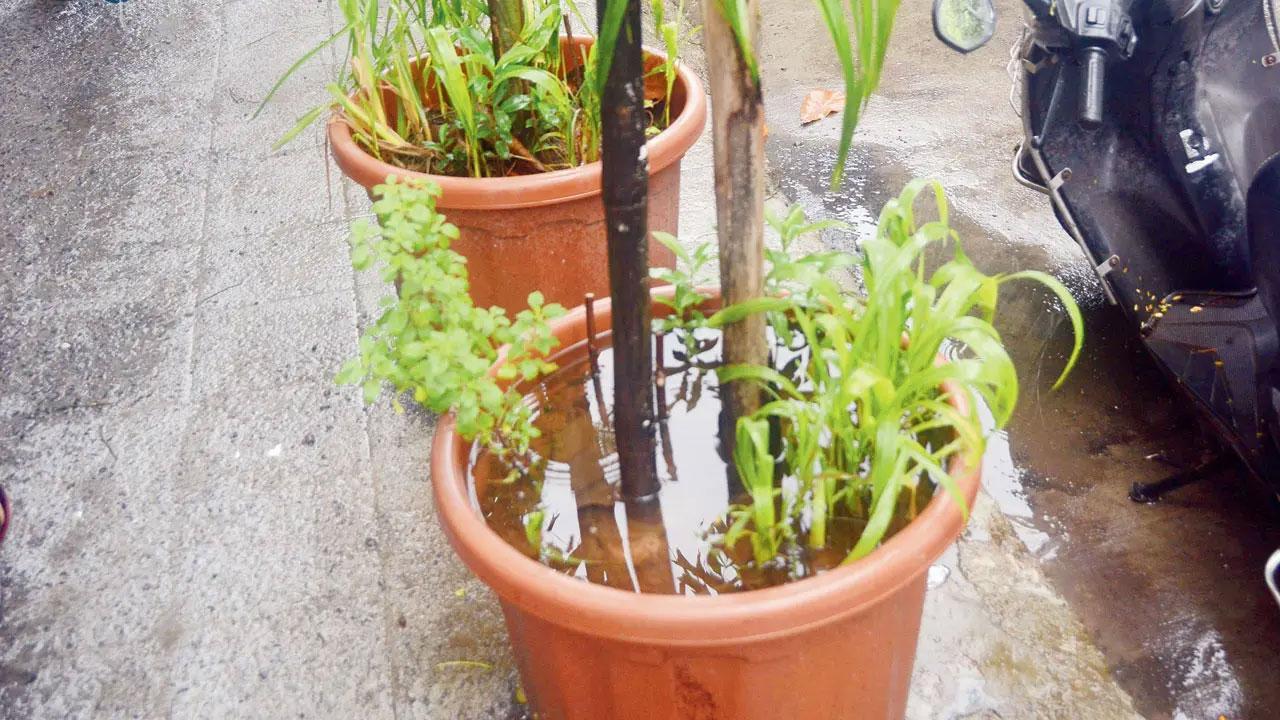The officials of BMC’s insecticide department agree that there is a possibility of mosquitoes breeding if water accumulates for over a week

Waterlogged pots along Andheri-Chakala Road, on Tuesday. Pic/Sayyed Sameer Abedi
The civic body has started anti-larval treatment in planters across the city in which rain water accumulates. This exercise has been undertaken at Andheri and Vile Parle East.
ADVERTISEMENT
Rainwater has been accumulating in the pots that have no drainage system. The officials of BMC’s insecticide department agree that there is a possibility of mosquitoes breeding if water accumulates for over a week.
According to a civic official, Anopheles mosquitoes that spread malaria can lay eggs in fresh water accumulated in such pots. The BMC’s insecticide department ordered their pest control officers to conduct anti-larval treatment in all pots. BMC has also treated planters set up on the divider of Hanuman Road in Vile Parle as well as pots at Andheri-Chakala.
This is a cautionary tale and must make us look within our immediate surroundings, beginning at home, for any kind of water storage that can be a breeding ground for mosquitoes.
Empty out plant pots immediately so that water is not collected there. Even vases, if they do not hold flowers, should be completely dry. If you do keep flowers change water frequently. See that water is not collected and kept in receptacles, through the home for any reason.
Sometimes, water is collected in cups and plates for a week or two. One has to ensure that plates under plant pots are dry. This is an important aspect as water drains out and collects in these plates and is
often overlooked.
The housing society premises itself need to be cleaned. From some construction work, or interior work being done in flats, to cleaning outside, water can collect in a number of places.
Committee members and all residents in fact, as committee members are not the only vigilantes need to be wary and work towards this.
Dry days are safe days this season.
 Subscribe today by clicking the link and stay updated with the latest news!" Click here!
Subscribe today by clicking the link and stay updated with the latest news!" Click here!







